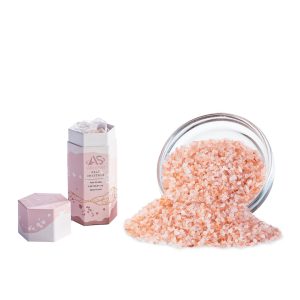Description
Salt, in moderation, offers several benefits to the body:
- Electrolyte Balance: Salt, rich in sodium, helps maintain the body’s electrolyte balance, crucial for nerve function and muscle contractions.
- Hydration: Sodium in salt aids in maintaining proper fluid balance within cells, preventing dehydration.
- Iodine Source: Iodized salt, a common type, provides essential iodine necessary for thyroid function, aiding in proper metabolism regulation.
- Food Preservation: Historically, salt has been used as a preservative, inhibiting bacterial growth in food and extending its shelf life.
- Flavor Enhancement: Salt enhances the taste of food, making dishes more palatable and enjoyable.
However, excessive salt intake can lead to health issues such as high blood pressure and increased risk of cardiovascular diseases. It’s essential to consume salt in moderation to reap its benefits without the associated risks.







Diya Kapoor –
मुझे थोड़ा नमक चाहिए